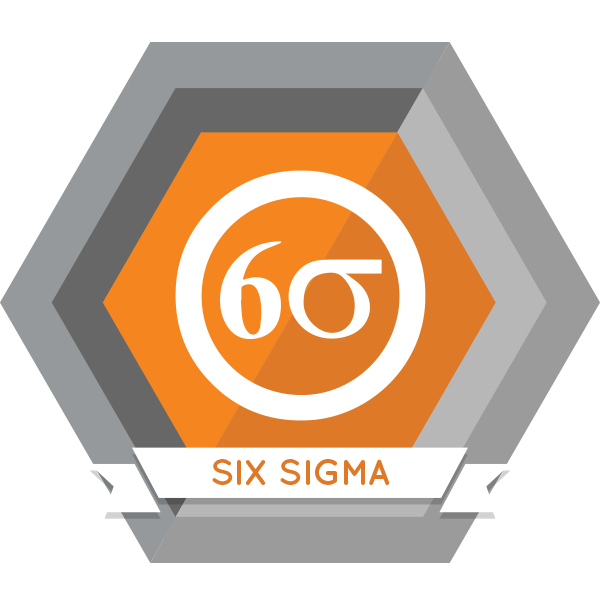- Electrical Training
- Safety
- Electrical Compliance
- Electrical Automation
- Electrical Maintenance
- Mechanical Training
- HVAC
- Codes and Standards
- Fluid Power
- Maintenance
- View All Training Programs
-
View All Electrical Safety Training ProgramsTop Electrical Safety Training Programs
- Arc Flash Electrical Safety [Based on NFPA 70E®]
- Electrical Safety: NFPA 70E Retraining
- Electrical Safety Awareness
- Electrical Safety Practical Skills for Switchgear
- Electrical Safety: Power Generation, Transmission & Distribution [based on OSHA 1910.269]
- Seguridad Eléctrica en el centro de trabajo, [Basado en el manual NFPA 70E® 2021]
Upcoming Training Programs- 06/03 - 06/04 : Live Online Training , CO Arc Flash Electrical Safety [Based on NFPA 70E®]
- 06/03 - 06/04 : Baltimore , MD Arc Flash Electrical Safety [Based on NFPA 70E®]
- 06/07 - 06/07 : Live Online Training , CO Electrical Safety: NFPA 70E Overview - NEW!
- 06/10 - 06/11 : Philadelphia , PA Arc Flash Electrical Safety [Based on NFPA 70E®]
- 06/17 - 06/18 : Atlanta , GA Arc Flash Electrical Safety [Based on NFPA 70E®]
-
View All Electrical Electrical Compliance Training ProgramsTop Electrical Electrical Compliance Training Programs
- 2020 NFPA 70® – National Electrical Code® [NEC]
- 2023 NFPA 70® – NATIONAL ELECTRICAL CODE® [NEC]
- Electrical Systems: SOARS Grounding & Bonding
- Electrical Systems: Hazardous Locations
- NEC® – Analysis of Changes 2020 with Practical Exercises
- NFPA 110® – Emergency & Standby Power Systems
- NFPA 70B® Standard Overview
- NFPA 70B® – Standard For Electrical Equipment Maintenance®
- NFPA 72: National Fire Alarm & Signaling Code®
- 2021 NFPA 79® – Electrical Standard For Industrial Machinery®
- NICET I & II
- National Electrical Safety Code® [NESC]
- NEC® – Analysis of Changes 2023
Upcoming Training Programs- 06/05 - 06/07 : Baltimore , MD 2023 NFPA 70® – NATIONAL ELECTRICAL CODE® [NEC]
- 06/05 - 06/07 : Live Online Training , CO 2023 NFPA 70® – NATIONAL ELECTRICAL CODE® [NEC]
- 06/12 - 06/14 : Philadelphia , PA 2023 NFPA 70® – NATIONAL ELECTRICAL CODE® [NEC]
- 06/19 - 06/21 : Atlanta , GA 2023 NFPA 70® – NATIONAL ELECTRICAL CODE® [NEC]
- 06/19 - 06/20 : Live Online Training , CO NICET I & II
-
View All Electrical Electrical Automation Training ProgramsTop Electrical Electrical Automation Training Programs
- Instrumentation & Process Control
- PLCs [Programmable Logic Controllers]: Automation Systems
- PLCs [Programmable Logic Controllers]: ControlLogix & RSLogix 5000
- PLCs [Programmable Logic Controllers]: Fundamentals
- PLCs [Programmable Logic Controllers]: Siemens Simatic S7
- Tuning DDC/Process Control Loops
- Variable Frequency Drives [VFD]
Upcoming Training Programs- 05/29 - 05/31 : Centennial , CO Instrumentation & Process Control
- 06/03 - 06/05 : Phoenix , AZ PLCs [Programmable Logic Controllers]: Fundamentals
- 06/04 - 06/06 : Reno , NV Variable Frequency Drives [VFD]
- 06/06 - 06/07 : Phoenix , AZ PLCs [Programmable Logic Controllers]: Automation Systems
- 07/09 - 07/11 : Houston , TX Instrumentation & Process Control
-
View All Electrical Electrical Maintenance Training ProgramsUpcoming Training Programs
- 05/29 - 05/31 : Elk Grove , IL Fiber Optics
- 06/04 - 06/05 : Houston , TX Basics of Industrial Electricity
- 06/05 - 06/06 : Centennial , CO Electrical Print Reading: Blueprints & Schematics
- 06/06 - 06/07 : Houston , TX Electrical Motor Control Circuits: Troubleshooting
- 06/07 - 06/07 : Live Online Training , CO Electrical Safety: NFPA 70E Retraining
-
View All Mechanical HVAC Training ProgramsTop Mechanical HVAC Training Programs
- Balancing of Water and Air Systems
- Boilers: An Operational Workshop
- HVAC: Brazing [Advanced]
- Air Conditioning & Refrigeration: Advanced
- HVAC: Air Conditioning & Refrigeration
- HVAC: Principles of Heating & Ventilation
- Chillers: Operation & Maintenance of Chilled Water Systems
- Steam Distribution Systems
- Water Treatment for Boilers and Chilled Water Systems
Upcoming Training Programs- 06/04 - 06/06 : Saint Louis , MO HVAC: Air Conditioning & Refrigeration
- 06/11 - 06/13 : Reno , NV HVAC: Air Conditioning & Refrigeration
- 06/11 - 06/13 : Elk Grove , IL Chillers: Operation & Maintenance of Chilled Water Systems
- 06/17 - 06/19 : Centennial , CO HVAC: Air Conditioning & Refrigeration
- 06/18 - 06/20 : Indianapolis , IN HVAC: Air Conditioning & Refrigeration
- View All Mechanical Codes and Standards Training Programs
-
View All Mechanical Fluid Power Training ProgramsUpcoming Training Programs
- 05/28 - 05/31 : Centennial , CO Hydraulics & System Troubleshooting
- 06/11 - 06/14 : Centennial , CO Hydraulics & System Troubleshooting
- 06/25 - 06/27 : Centennial , CO Centrifugal Pumps
- 07/23 - 07/26 : Houston , TX Hydraulics & System Troubleshooting
- 08/13 - 08/16 : Phoenix , AZ Hydraulics & System Troubleshooting
-
View All Mechanical Maintenance Training ProgramsUpcoming Training Programs
- 06/11 - 06/13 : Centennial , CO Mechanical Drives & Power Transmission
- 07/30 - 07/31 : Centennial , CO Electric Motors: Understanding & Troubleshooting
- 08/06 - 08/07 : Centennial , CO Principles of Bearings & Lubrication
- 08/08 - 08/09 : Centennial , CO Shaft Alignment with Laser Technology
- 09/17 - 09/19 : Centennial , CO Mechanical Drives & Power Transmission
Select the following link if you would like to recover a report that has been previously deleted.
Six Sigma
 |
Six Sigma Skills Modules |
| This group of modules outlines the role Six Sigma will play in the manufacturing process. Each module in this competency group builds on the one before it, giving you confidence as you develop your knowledge in a way that is logical and intuitive. | |
Six Sigma and the Organization | |
Six Sigma and the OrganizationThis module explains how Six Sigma’s techniques and principles are employed to improve an organization’s bottom line by eliminating the variation in business processes that will result in defects (Estimated completion time: 1.9 hours). |
|
Lean PrinciplesAfter completing this module, you will be able to describe how lean is used to eliminate waste using tools like 5S, kaizen, and poke-yoke; use a value stream map to identify waste; define value, value-added, and non-value-added; and explain the theory of constraints (Estimated completion time: 1.5 hours). |
|
Design for Six-Sigma (DFSS)This module describes how quality function deployment fits into the overall DFSS process, the purpose of QFD, the purpose of process and design failure mode and effects analyses (PFMEA and DFMEA), and how to create a QFD (Estimated completion time: 1 hour). |
|
Six Sigma Define | |
Process Elements for ProjectsThis module defines the components of processes, process boundaries, process owners, and stakeholders. It also outlines the means of identifying customers and collecting customer data (Estimated completion time: 1.2 hours). |
|
Project Management BasicsThis module is designed to teach you how to create a project charter and perform risk analysis during the define phase of a Six Sigma project (Estimated completion time: 1.1 hours). |
|
Management and Planning ToolsUpon completion of this module, you will be able to define an affinity diagram, interrelationship diagram, tree diagram, prioritization matrix, PDPC, and activity network diagram (Estimated completion time: 0.7 hours). |
|
Business Results for ProjectsAfter completing this module, you will be able to define Defects per Unit (DPU), Rolled Throughput Yield (RTY), and Defects per Million Opportunities (DPMO), as well as describe sigma level and process capability indices (Estimated completion time: 1.1 hours). |
|
Team Dynamics and PerformanceThis module outlines the stages of team evolution, brainstorming, multivoting, nominal group technique, and the different roles of a Six Sigma team (Estimated completion time: 1.3 hours). |
|
Define Phase ToolsThis module is designed to acquaint you with common define phase tools, including audits, surveys, cause and effect diagrams, focus groups, check sheets, interviews, Gantt Charts, graphical charts, force field analysis, sampling plans, benchmarking, Advanced Quality Planning (AQP), and the Project Evaluation and Review Technique (PERT)/Critical Path Method (CPM) (Estimated completion time: 1.9 hours). |
|
Six Sigma Measure | |
Process Analysis and DocumentationBy completing this module, you will be able to identify process input variables, process output variables, process maps, written procedures, and work instructions. Additionally, you will be able to recognize the relationships between input variables and output variables (Estimated completion time: 1 hour). |
|
Probability and StatisticsThis modules outlines the process for using probability and statistics to measure samples of a product and provide mathematical proof of the quality of the product or process. Upon completion of this module, you will be able to distinguish between descriptive and inferential statistics and a population parameter and a sample statistic, as well as define a central limit theorem and its significance in statistics (Estimated completion time: 2.1 hours). |
|
Collecting and Summarizing DataThis module shows you how to identify continuous or variable data and discrete or attribute data; construct and interpret diagrams; define nominal, ordinal, interval, and ratio measurement scales; and apply techniques such as random sampling, stratified sampling, and sample homogeneity (Estimated completion time: 1.7 hours). |
|
Probability DistributionsAfter completing this module, you will be able to identify formulas for calculating the probability of data values of different probability distributions, and interpret normal, binomial, Poisson, t, chi square, and F distributions (Estimated completion time: 2.2 hours). |
|
Measurement System AnalysisUpon completion of this module, you will be able to define measurement terms including sensitivity, accuracy, precision, bias, and linearity, as well as conduct gauge repeatability and reproducibility studies (Estimated completion time: 2.5 hours). |
|
Process Capability PerformanceThis module is designed to teach you how to conduct a process capability study, distinguish between natural process limits and specification limits, calculate process and performance indices, and understand the differences between short-term and long-term capability (Estimated completion time: 1.9 hours). |
|
Six Sigma Analyze | |
Exploratory Data AnalysisThis module explains how to use statistical tools to perform an analysis of data to identify and confirm the variable that causes the most variation in a process or product. Upon completion, you will be able to create and interpret multi-vari studies and the linear correlation coefficient; identify the differences between positional, cyclical, and temporal variations; and determine the statistical significance of a linear correlation coefficient (Estimated completion time: 1.9 hours). |
|
Hypotheses Test BasicsUpon completion of this module, you will be able to distinguish between statistical significance and practical significance; define null and alternative hypotheses, confidence levels, and confidence intervals; apply tests for significance level, power, and type I and type II errors; and calculate confidence intervals for population parameters (Estimated completion time: 1.5 hours). |
|
Hypotheses TestsThis module outlines paired-comparison hypotheses tests, chi-square and its use to determine statistical significance, and one-way ANOVAs (Estimated completion time: 2.7 hours). |
|
Six Sigma Improve and Control | |
Design of ExperimentsUpon completion of this module, you will be able interpret interaction plots and the main effects of a factor (Estimated completion time: 1.3 hours). |
|
Statistical Process Control (SPC)This module shows you how to use SPC to predict variation in processes (Estimated completion time: 1.7 hours). |
|
Implement and ValidateAfter completing this module, you will be able to list the steps to improve a process and identify Six Sigma tools used to improve a project and validate improvement efforts (Estimated completion time: 0.8 hours). |
|
Control PlansThis module outlines the requirements for a control plan, including sources of information and required documents (Estimated completion time: 1 hour). |
|
Our Mission:
"Deliver solutions to our clients (and their global workforce) designed for safety, productivity and profitability.”
NTT Training Inc. has been accredited by the Accrediting Council for Continuing Education & Training (ACCET). ACCET accreditation serves the interests of companies, agencies, and the public through the establishment of standards, policies, and procedures in conjunction with an objective third-party professional evaluation designed to identify and inspire sound education and training practices. 
 Better Business Bureau
Better Business Bureau
A Training Division of ECPI University
